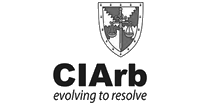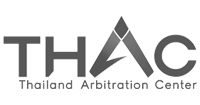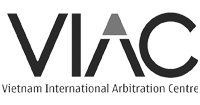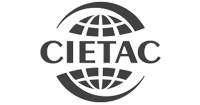INTERNATIONAL COMMERCIAL DISPUTE RESOLUTION IS GROUNDED IN PARTY CONSENT FOR PARTY APPOINTED TRUSTED EXPERTS TO DISPENSE JUSTICE BY REFERENCE TO APPLICABLE LEGAL SYSTEMS AND LAWS WITH A RECOGNISED AND ENFORCEABLE OUTCOME

For non-arbitrators, non-lawyers other than arbitration and dispute professionals, the myriad of arbitral institutions can, even for sophisticated commercially minded people, be understandably challenging. For lawyers also not specializing in dispute resolution or limited to litigation, there can still be confusion as to the purpose, objectives and nature of the role of arbitral institutions in a dispute. On such basis, it is helpful to describe some of the arbitration institutions that exist, but for the sake of time, on a limited basis, which is what I have done on this page.
To implement judicial reasoning by reference to consent of the parties, free of bias, in an impartial manner with fairness and due process
In separate sections, I will set out a brief limited summary of a selection of arbitral institutions for your further research and investigation.
International Chamber of Commerce (“ICC”) – International Court of Arbitration
The ICC is an institution formed by entrepreneurs on the belief that the private sector is best qualified to set global standards for business. This was a reaction in part to the economic and political effects of world conflicts and the ICC founders were dubbed “Merchants of Peace”.
The ICC evolved its constitutional framework through the establishment of an international court of arbitration and is now the world’s most prominent arbitral institution for international commercial arbitration, amidst an increasingly competitive environment.


The Chartered Institute of Arbitrators (“CIArb”)
The Chartered Institute of Arbitrators was originally founded as the Institute of Arbitrators on 1 March 1915 and registered as a charity in the U.K. in 1990, having been incorporated by Royal Charter in 1979. The Royal Charter Bye-Laws and associated documentation relating to the constitution and governance system of CIArb which comprises a Board of Trustees, Board of Management, a disciplinary tribunal and various committees and sub-committees appointed to oversee the object and charitable purpose of the Institute globally. There is a President, a Patron, Director-General and Directors at the upper tier of the organization.
Thai Arbitration Centre (“THAC”)
THAC was set up by the Thai Government under the framework of meeting international standards under the ASEAN, to carry out processes within the framework of the Act of Arbitration Center 2007 and with a vision of becoming the leading arbitration and dispute resolution centre in Asia.


Thai Arbitration Institute (“TAI”)
The TAI was founded in 1990 originally as the ‘Arbitration Office under the supervision of the Ministry of Justice’, the responsibility for which in relation to TAI has shifted to the Office of the Judiciary which provides consultation to both the Thai private and public sectors. The TAI is Government funded so the parties do not have to pay an institutional fee for its service and only pay for actual expenses and any amenities for a hearing or meeting.
Vietnam International Arbitration Centre (“VIAC”)
VIAC is a permanent arbitral organization established in 1993. VIAC promotes itself as an independent, professional and long-standing institution to settle disputes by arbitration and mediation, with Vietnamese arbitrators and high-ranking international experts with a professional secreatariat. VIAC is a non-profit organization and handles international and domestic disputes. It also has its own set of rules and procedures, available on its website in English and Vietnamese and a set of resources available for inspection.


Hong Kong International Arbitration Centre (“HKIAC”)
The HKIAC is a company limited by guarantee and a non-profit organization established under Hong Kong Law recognized by some research and studies as one of the leading regional arbitral organisations and is well established since 1985. HKIAC is financially self-sufficient and does not receive Government funding thereby remaining independent, in that respect, from Government.
Singapore International Arbitration Centre (“SIAC”)
SIAC commenced operations in 1991 as an independent not-for-profit organization and is also considered as one of the leading arbitration institutes. SIAC also has a ‘Court’ which is a supervisory construct designed to oversee administration and procedure. SIAC does not focus on mediation, which is dealt with by different Singaporean institutions and is now linked to the Singapore Convention on Mediation which deals with recognition and enforcement of settlement agreements agreed further to mediation proceedings.


The Australian Centre for International Commercial Arbitration (“ACICA”)
International Arbitration in Australia was streamlined through amendments to the International Arbitration Act, which distinguishes domestic state arbitration from international arbitration governed on a federal level in accordance with UNCITRAL Model law. ACICA was set up in 1985, adopted its most recent international standard set of rules in 2016 which incorporates provisions on emergency arbitrators, expedited proceedings, confidentiality of proceedings and consolidation of arbitrations.
ACICA promotes itself on its neutrality, proximity to Asia, the transparent legal framework, independent and supportive judiciary, its professionals and stable political environment and economy amongst other positives.
Judicial Arbitration and Mediation Services (“JAMS”)
JAMS was founded in 1979 and promotes itself as the world’s largest private alternative dispute resolution provider with an average of 18,000 cases on an annual basis with international capabilities globally including through relationships and affiliations with other institutes. JAMS has its own set of established rules and carries out arbitration and mediation services. It has a large roster of professionals and its own facilities are based in Los Angeles and New York.


Chinese International Economic and Trade Arbitration Commission (“CIETAC”)
CIETAC was originally established as the Foreign Trade Arbitration Commission in 1956, and has evolved further to state development and foreign trade policy. CIETAC is headquarted in Beijing but also has a presence across the People’s Republic of China in major cities. It has a set of rules last updated at the time of writing this audioclip of 1 January 2015 in accordance with international standards and stated it had handled over 2000 cases annually as an average.